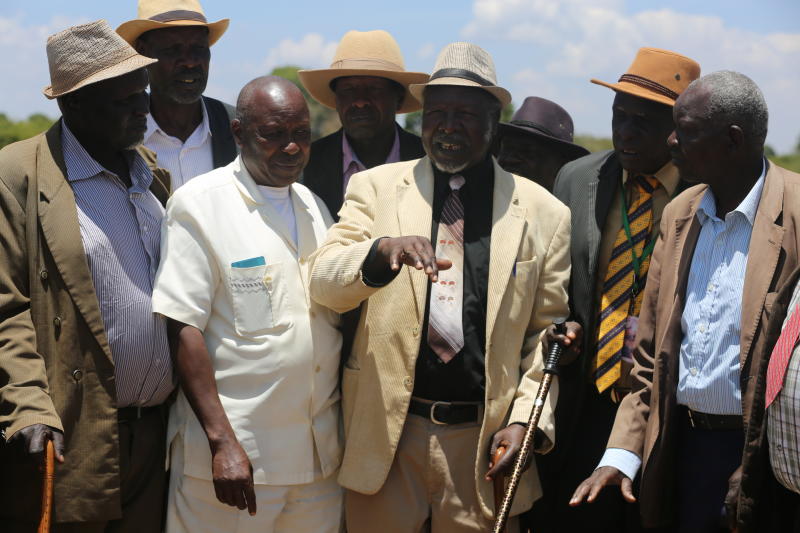Myoot Council of Elders in Uasin Gishu County led by their spokesman Edwin Chepsiror (centre) address press in Eldoret, condemning the attack on ODM Raila Odinga. [Peter Ochieng, Standard]

Myoot Council of Elders in Uasin Gishu County led by their spokesman Edwin Chepsiror (centre) address press in Eldoret, condemning the attack on ODM Raila Odinga. [Peter Ochieng, Standard]
The stoning of a helicopter carrying former Prime Minister Raila Odinga during his visit to Uasin Gishu County is indicative of pervasive political intolerance. Over the years, there has been emphasis on the need to allow people with divergent political views to freely express them. The National Cohesion and Integration Commission is mandated to, among others, “enhance tolerance, understanding and acceptance of diversity in all aspects of national life”. After the 2007 post-election violence, a lot of programmes were launched aimed at creating public awareness on the need for harmonious co-existence.